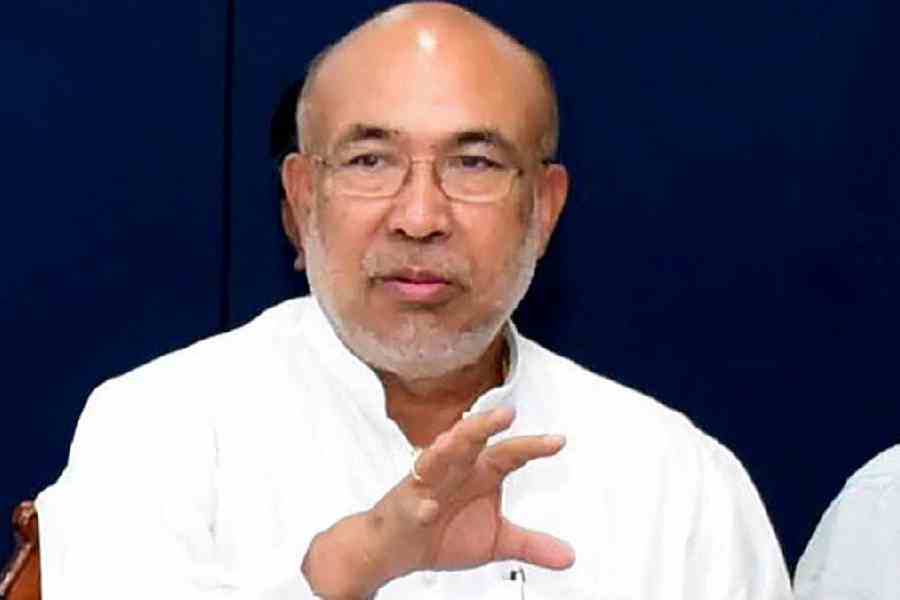The BJP-led Manipur government has requested the Centre to “permanently close” the free movement regime (FMR) with Myanmar to check influx from across the border.
The FMR is an arrangement between India and Myanmar to allow people living along the international border to go as deep as 16km into each other’s territory without any official document or visa. It became operational in 2018.
Manipur chief minister N. Biren Singh told journalists in Imphal on Saturday that the FMR with Myanmar was currently suspended and “the Centre has been requested to permanently close the agreement in the state”.
He said the move was aimed at curbing the entry of illegal immigrants from across the border, adding that his government had also requested the Centre to fence the international border.
The violence that has engulfed Manipur since May 3, leaving at least 176 dead and over 67,000 displaced, has put the spotlight on the FMR.
Meitei-based organisations have been routinely flagging “increasing influx” of Kuki-Chin people from across Myanmar and “narco-trade” as reasons behind the unrest in Manipur.
Manipur shares a 398km border, mostly porous, with Myanmar. Of this, only about 6km is fenced. Five hill districts of the northeastern state border Myanmar. The hills are inhabited mostly by the Kuki-Zo and Naga tribes and the valley by the Meitei people.
The chief minister dedicated a substantial part of his media interaction to highlighting his government’s plans to check influx and drug trade, including the request to close the FMR. Singh said a cabinet sub-committee headed by minister Letpao Haokip that has been tasked with checking and identifying illegal immigrants “with an objective to protect and safeguard the future generations of the indigenous people” would continue to function.
Singh said his government had requested the Centre to extend the time for recording of biometrics of Myanmar nationals who have illegally entered the state. According to the chief minister, the Centre has started the groundwork for fencing 60km of the international border.
The FMR was implemented to facilitate people-to-contact and border trade but was stopped first to check the spread of Covid and then influx because of the coup in Myanmar that has led to a lot of people from that country fleeing to Mizoram, Manipur and Nagaland.
The Kuki-Zo people of Manipur, the Chin of Myanmar and the Mizos of Mizoram share the same ancestry. Manipur is hosting around 2,500 Myanmar refugees while Mizoram has over 35,000.
The northeastern states other than Manipur that share a border with Myanmar are Mizoram, Arunachal Pradesh and Nagaland. The Indo-Myanmar border, demarcated by the British in 1826, is 1,643km long, running through a mountainous terrain.
Chief minister Singh said a joint committee of the Narcotics Control Bureau and the state’s Narcotics and Affairs of Border (NAB) had been formed to survey and destroy poppy plantations, another issue flagged by Meitei organisations.
He appealed to all to stand unitedly, including “the indigenous Kuki brothers and sisters, to rebuild the old peaceful Manipur and resettle the displaced families”.











